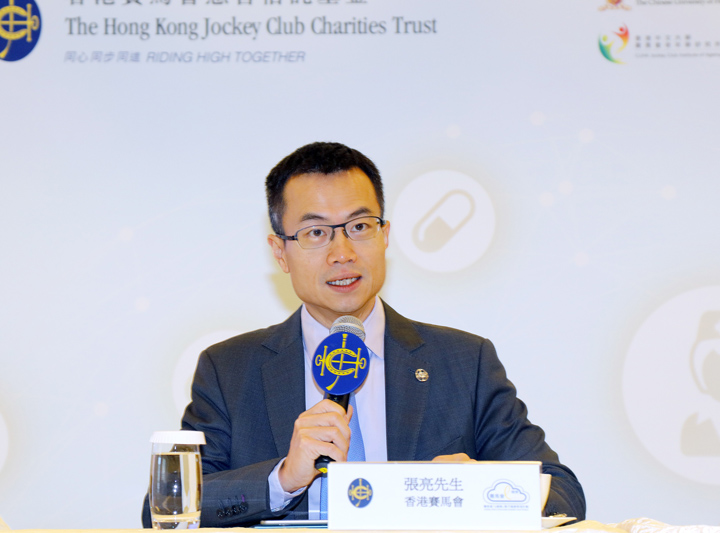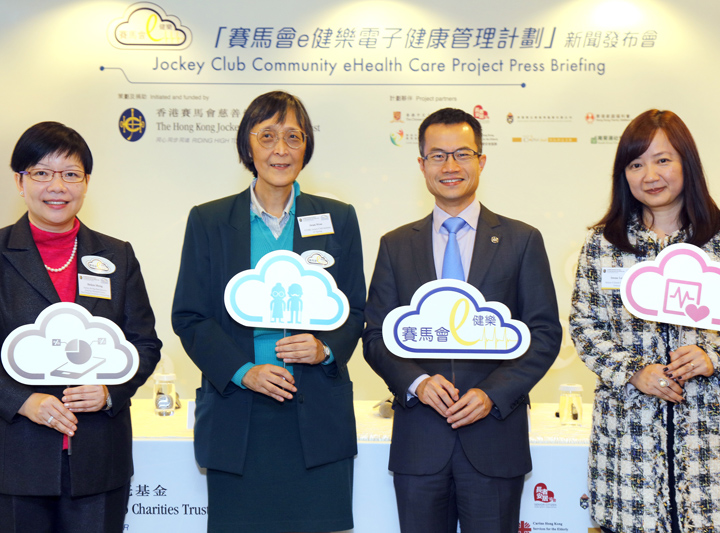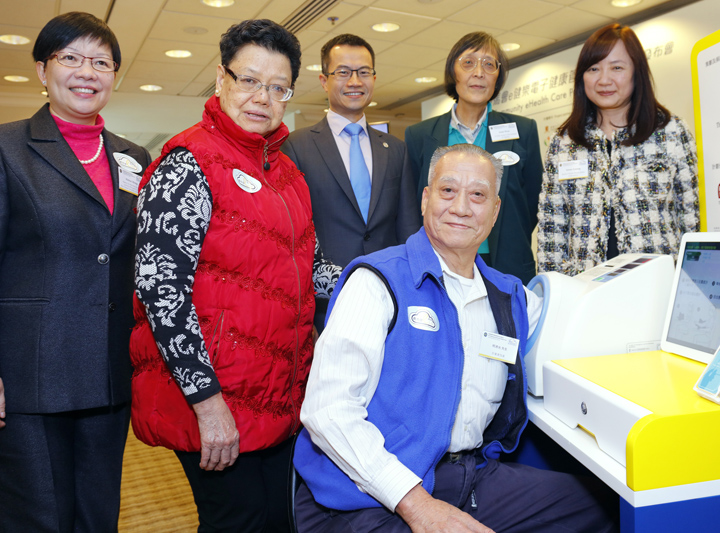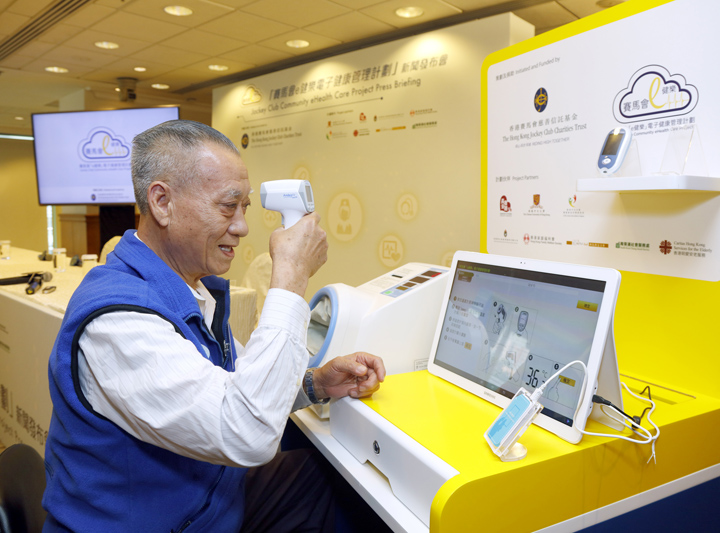

Community & Charities
Elderly Services
Club-initiated e-health project to help promote self-management of the elderly
05/12/2016
Over 1.38 million people in Hong Kong suffer from chronic diseases, according to a survey conducted by Census and Statistics Department in 2013 – and nearly two-thirds of them are, aged 60 or above.
As a means of improving the health awareness of the city’s elderly, the Club’s Charities Trust has donated some HK$138 million to implement a three-year Jockey Club Community eHealth Care Project in partnership with the Senior Citizen Home Safety Association (SCHSA), the CUHK Jockey Club Institute of Ageing (IoA) and various NGOs. Under this project, cloud technology will be used to assist the elderly in carrying out regular health measurements within their local community. Surveys and data analysis will also be conducted to understand the health status of the elderly in Hong Kong.
This is one of a number of projects proactively initiated by the Trust in recent years to help address the short- to long-term challenges arising from Hong Kong’s ageing population trend. Its strategy is to extend the healthy and active years of the city’s elderly through preventive support, thereby promoting positive ageing.
Through the Jockey Club Community eHealth Care Project, the Club hopes to enhance the quality of life of the elderly at three levels: at the individual level, to raise their awareness of self-management and extend their active period of life; at community level, to strengthen the capacity of elderly centres in providing health support; and at the system level, to promote better collaboration between the healthcare and social systems through piloting an innovative care service model.
The Jockey Club Community eHealth Care Project consists of three main components:
1. Tele-care programme. E-health corners will be set up in 80 elderly centres, benefiting some 5,000 elderly people over the three-year project period. After logging in to the e-health stations with their smart cards, the elderly will be assisted to conduct health measurements of blood pressure, blood glucose and weight by trained staff or professional health workers. This data will then be transferred to SCHSA by cloud technology for real-time monitoring and analysis. If the readings fall outside expected norms or no data is recorded for a prolonged period, the SCHSA nursing team will call those participants and follow up. Regular outreach visits will also be provided by a multi-disciplinary team of nurses, health workers and social workers to share health information with the elderly. The project is not aimed at replacing existing medical services or body checks received by the participants; instead, it will encourage them to build self-management habits and gain a better understanding of their own health.
2. Well-being surveys. The IoA will support the participating elderly centres in carrying out regular well-being surveys for around 10,000 people, focusing on their cognitive, psychological and social well-being. The results will help give the elderly centres a comprehensive understanding of their users’ needs, enabling them to design suitable activities and services for them.
3. Big data analysis. IoA will apply big data analysis to the information collected from the tele-care programme and well-being surveys to better understanding the health status and health trends of the elderly in Hong Kong.





